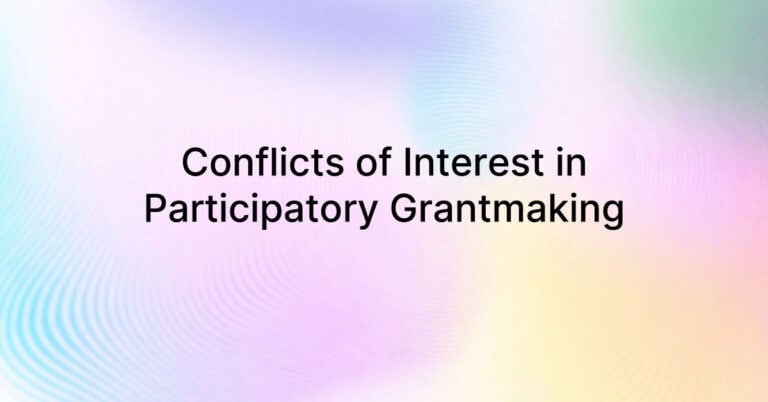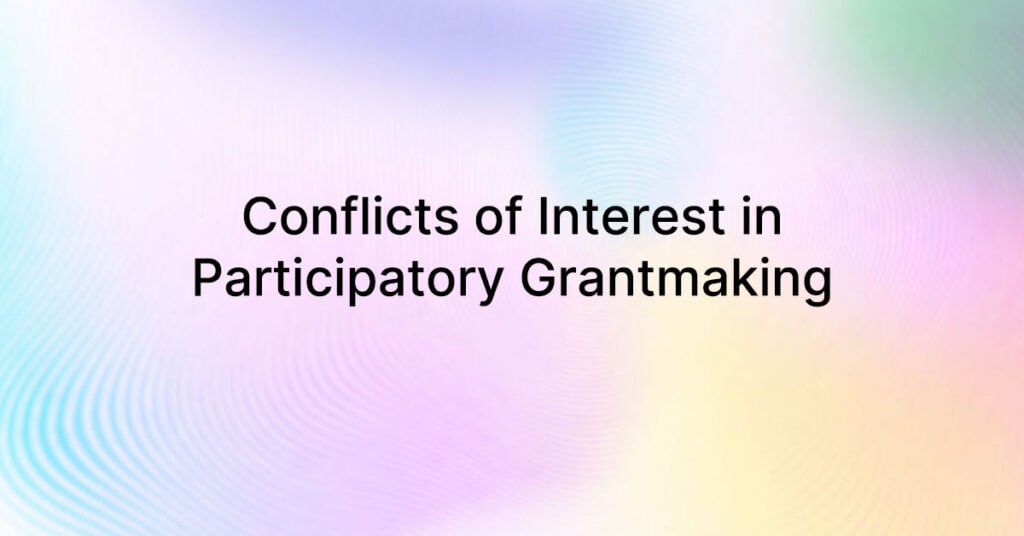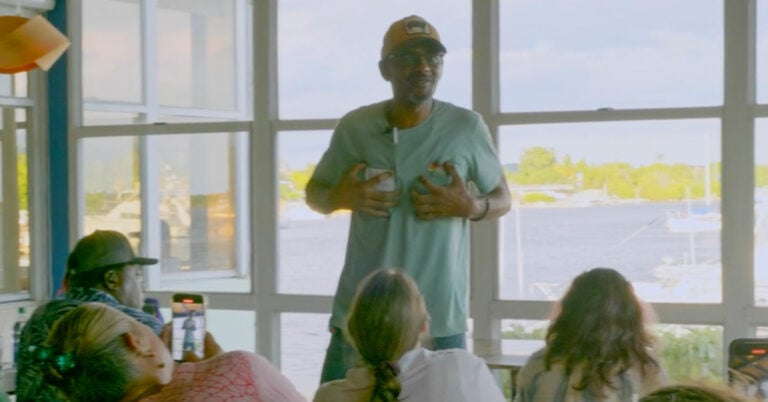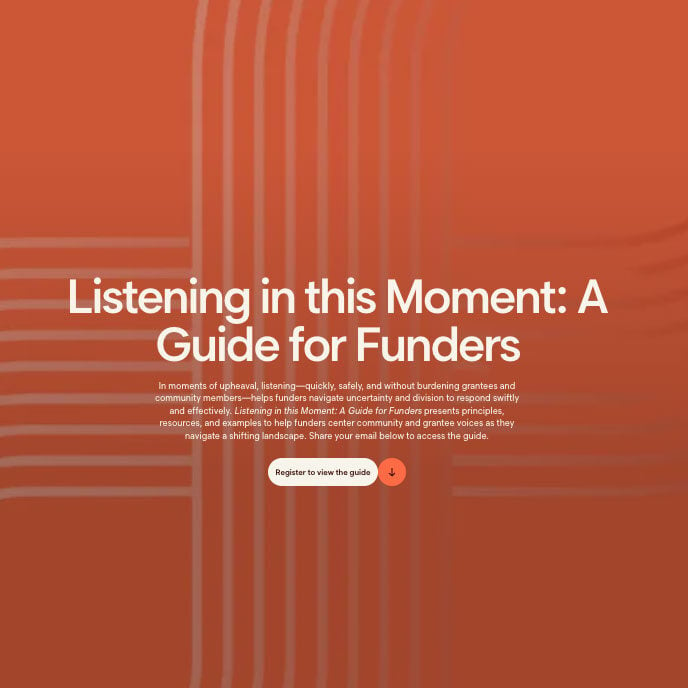This post is part of an ongoing series of updates to our Participatory Philanthropy Toolkit, a comprehensive resource based on our one-time exploratory project, called Participatory Climate Initiative. Each update aims to highlight relevant challenges, offer practical solutions, and ensure that the toolkit evolves to meet the changing needs of funders working to integrate participatory practices that share decision making, build trust, and shift power.
As the facilitators of Fund for Shared Insight’s Participatory Climate Initiative, we began our work by identifying people who could connect us with potential participants. We started with one phone call, got a referral to talk to another person, received another suggestion from that person, and moved along in the same manner over and over. We continued this until we reached a large and diverse network of interconnected people to invite into the initiative.
The people in this network had deep knowledge about and relationships within communities impacted by climate change across the United States. Participants were brought into the process precisely because they were connected to other participants in the process. Their connections in their communities gave them the credibility and knowledge they needed to do their work effectively. We were thrilled that participants were willing to share their networks, expertise, relationships, and more with the group.

A tool to help you address, destigmatize, and embrace interconnectedness.
We also recognized that in an interconnected context like this, the potential for conflicts of interest simply cannot be avoided. Instead of avoiding conflicts of interest altogether, we created a system for addressing them and also destigmatizing them. This involved extensive training and discussion with the group, a clear process for participants to confidentially disclose potential conflicts, action plans to address conflicts and mitigate risks that were personalized for each participant, and a willingness to partner with participants to evolve our understanding of this issue together with them.
Our experiences handling conflicts and potential conflicts of interest led us to create a new resource that we’ve added as an update to Fund for Shared Insight’s Participatory Philanthropy Toolkit.
Conventional approaches to conflicts of interest are all about steering clear of them. Funders are urged to prioritize risk avoidance, and thus to steer clear of participatory processes that involve people with close relationships and overlapping roles. By contrast, we encourage funders to embrace interconnectedness, which in participatory processes, can draw out the community wisdom and insight best placed to guide philanthropic decision making. We want funders to see relationships among people closest to the issues as an asset and opportunity; a risk to be managed, not always just avoided.
Of course, conflicts of interest do present a real challenge for grantmakers. Funders must operate within legal and regulatory frameworks that govern how they handle conflicts of interest, including strict rules around self-dealing. These risks do need to be responsibly managed. But avoiding conflicts of interest at all costs is not the answer. Such total risk avoidance might keep funders from trying out participatory practices altogether or cause them to hesitate in their participatory work. This means losing out on the potential benefits that nuanced and overlapping relationships among participants bring.
The resource we created is also meant to help funders work with participants who, in our experience, can be equally, if not more, motivated than funders to avoid conflicts of interest or even the appearance of them. We heard participants in Shared Insight’s initiative share concerns about how a perceived conflict could damage their reputations in their communities or affect their relationships with others. They knew they would be held accountable for their decisions when they saw their friends, family, and neighbors at the grocery store, and they wanted to steer clear of any perceived self-dealing. We surmised that this kind of hypervigilance was a carry over from experiences some participants might have had with funders who attached a negative stigma to any kind of relationship among participants in a grants process.
With sample scenarios, practical tips, and reflection questions, we hope the new tool can help funders and participants manage the risks of conflicts of interest while preserving the benefits of interconnectedness in philanthropy and the communities we seek to serve.
Input and feedback
Please reach out to our program manager Katy Love if you have questions, suggestions, or more to discuss about participatory grantmaking.
About the authors: Winifred Olliff and Katy Love led Shared Insights’ Participatory Climate Initiative.

Winifred Olliff









